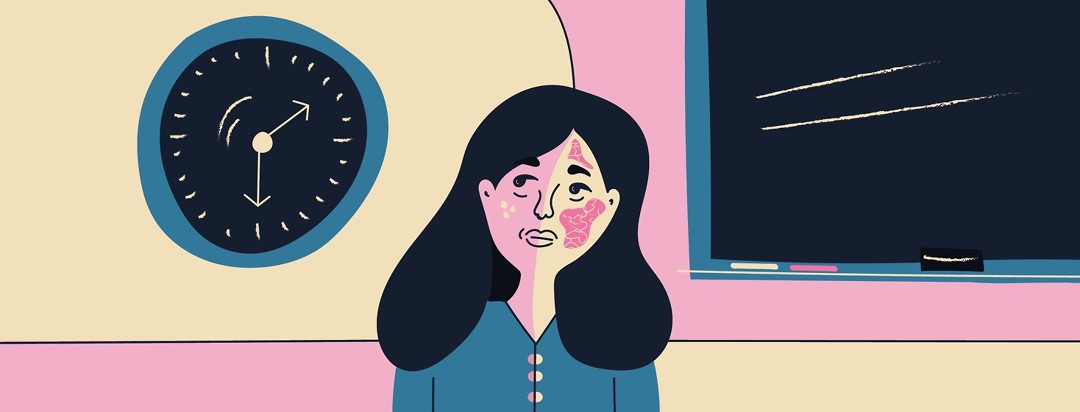Efudex vs. Cryosurgery: Timing is Everything
Numbers aren’t my thing. Some are more irritating than others. I lost count years ago as to the number of visits I have had with my dermatologist, and I never did try to count the white spots I have accumulated from cryosurgery. Since my first dermatologist visit for melanoma in 2007, it’s been rare to see my dermatologist last the entire visit without reaching for the canister of liquid nitrogen. My sun damage is extensive and its roots run deep--I pay the price for my tanning habits, and I pay heavily.
The importance of choices
For many years and with other dermatologists, I wasn’t given an option about cryosurgery. I began my journey with the dermatologist with a multitude of precancerous spots, and as time passed, I continued to require cryosurgery to eliminate suspicious lesions from my chest, face, and back. One by one, my doctor would freeze these tiny spots leaving white patches of skin where the original troublesome spot once resided. Never given much choice in the matter, I assumed cryosurgery was the only way to go. Recently, my current dermatologist has allowed me more freedom in the decision-making process--something I greatly appreciate.
Decisions, decisions...
Today, I went for my three-month visit and wasn’t surprised to find that my doctor wanted to discuss three spots on my face. One flaky spot on my nose had been bothering me for a few weeks, and the other two areas on either cheek were fairly benign-looking to me but concerned my doctor. He is well aware of my Efudex history and knows that I often spot treat when needed. He drew me into the process by asking me if I wanted to spot treat with topical chemotherapy or let him freeze them off.
The face is a touchy area. As I said earlier, I have had dozens of spots frozen from my face, chest, and back--not all of those were by my choice either. I’ve grown so accustomed to the regular freezing, I sometimes find myself saying, “What’s a couple more?” After years of cryosurgery, it’s nice to be asked what I want to do. Those mini blasts of liquid nitrogen hurt. There’s just no way to sugarcoat it--they sting like nothing else. The pain is definitely something I can get past, but the small white scars left behind unnerve me.
Weighing the options
Not being crazy about the idea of three more white spots that always resemble forgotten flecks of random donut glaze on my face, I balked. My dermatologist is really the best--he saw me flinch at the idea but continued to suggest that I was free to do either. Not once did he push me into making one decision or the other. I asked him what he thought I should do. He suggested knocking them out with liquid nitrogen rather than dealing with weeks of spot treatments. I have to say his rationale, at least this time, sounded like the better deal. I generally always opt to spot treat my face to avoid scarring. Sometimes, though, the timing isn’t right for Efudex.
I only have one more day at home before school starts again, and I have exactly one week left until I will stand facing a room full of third-graders on a daily basis. Efudex is not something I want to battle during the beginning of a busy school year. Its side effects and the unsightly blistering are no way to begin a new school year.
Weigh your options
Timing truly is everything when you are treating skin cancer and trying to thwart those precancerous cells. When your doctor gives you the option to treat with Efudex or face a few seconds of liquid nitrogen, consider the area being treated and the time required to treat with Efudex. Weigh your options. Ultimately, you are comparing the end result of small white scars to the side effects and inconvenience of dealing with Efudex for two to three weeks. If you are fortunate enough to be included in making the decision, take the time to make it your own. Either way, you can’t go wrong. Any time skin cancer is involved, vigilance and prevention win in the end.

Join the conversation